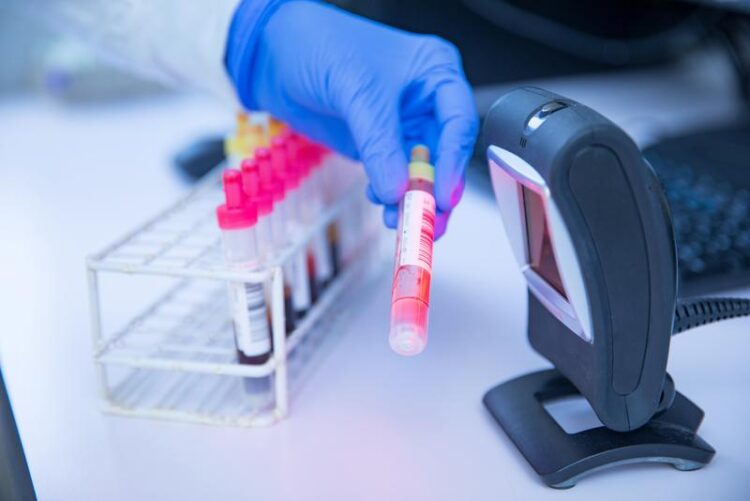What leads to severe COVID-19 diseases?

The photo shows the scanning of a blood sample in a laboratory at CiiM.
(c) Karin Kaiser / MHH
MHH research team analyses genetic and epigenetic regulators.
Infection with SARS-CoV-2 leads to severe disease in some people, while others do not get ill or only experience mild disease. But why is this the case? Unfortunately, we do not know exactly. We do know that an overactive innate immune system is causing severe COVID-19 disease, but it is unclear how this is regulated. A team led by Professor Dr. Yang Li from Hannover Medical School (MHH) has come a step closer to answering this question. They addressed the question to what extent the course of disease is genetically or epigenetically regulated. The team included scientists from the MHH who, like Professor Li, also conduct research in the Cluster of Excellence RESIST.
The team was able to identify underlying regulators of the malfunction of the innate immune system in COVID-19. In addition, it was able to confirm that certain already known genetic risk factors play a role in the development of the COVID-19 disease. The results have been published in the journal Cell Genomics. First authors of this publication are Dr Valerie Koeken, Dr Bowen Zhang and Dr Zhenhua Zhang. The research team conducted the study at the Centre for Individualised Infection Medicine (CiiM).
For this study, the team examined individual immune cells from the blood of COVID-19 patients using single-cell multiomics analysis. This technique can be used to simultaneously assess how cells are being regulated and how they are functioning. For this purpose, both the genetic material of the cells is examined and it is analysed if certain parts of the genome are ‘switched on’ (epigenetics) and if genes are being transcribed into ribonucleic acid molecules.
In a specific type of white blood cells (monocytes) whis are overactivated in severe COVID-19 disease, the team was able to identify how altered accessibility to chromatin is regulating gene expression and which transcription factors are steering these dysfunctional monocytes. In addition, they were able to identify how a specific genetic variant is contributing to a higher viral load and an increased risk of needing hospitalisation for COVID-19. This enabled them to identify one of the factors driving increased susceptibility to severe disease in certain individuals. “Overall, our study highlights the multiple genetic and epigenetic regulators that contribute to COVID-19,” summarises Prof. Li.
Wissenschaftliche Ansprechpartner:
For further informationen please contact Li.Yang@mh-hannover.de, Phone + 49 511 2200-27201 or have a look at thie website of the Cluster of Excellence RESIST www.RESIST-cluster.de.
Media Contact
All latest news from the category: Health and Medicine
This subject area encompasses research and studies in the field of human medicine.
Among the wide-ranging list of topics covered here are anesthesiology, anatomy, surgery, human genetics, hygiene and environmental medicine, internal medicine, neurology, pharmacology, physiology, urology and dental medicine.
Newest articles

Hyperspectral imaging lidar system achieves remote plastic identification
New technology could remotely identify various types of plastics, offering a valuable tool for future monitoring and analysis of oceanic plastic pollution. Researchers have developed a new hyperspectral Raman imaging…

SwRI awarded $26 million to develop NOAA magnetometers
SW-MAG data will help NOAA predict, mitigate the effects of space weather. NASA and the National Oceanic and Atmospheric Administration (NOAA) recently awarded Southwest Research Institute a $26 million contract…

Protein that helps cancer cells dodge CAR T cell therapy
Discovery could lead to new treatments for blood cancer patients currently facing limited options. Scientists at City of Hope®, one of the largest and most advanced cancer research and treatment…



